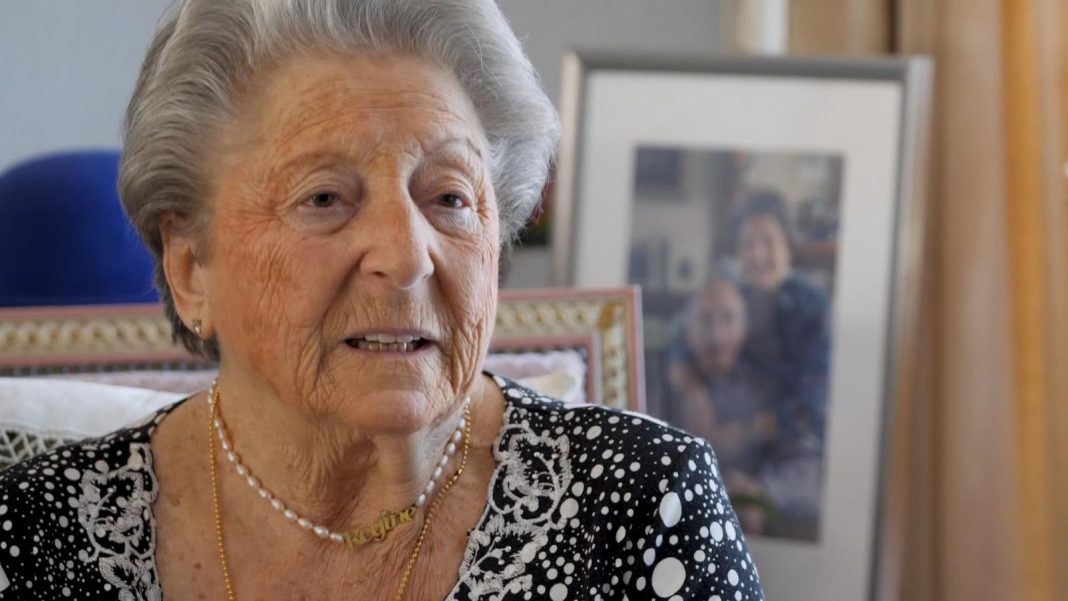A Holocaust survivor in Belgium says she knows Jewish people who have packed their bags ready to flee amid a spike in antisemitism.
Regina Sluszny, 84, from Antwerp, says incidents have rocketed since the outbreak of the latest conflict between Israel and Hamas.
Authorities in the city, which has the largest Hasidic Jewish population in Europe, say they received 90 reports of antisemitism in the first six weeks following the 7 October Hamas attacks last year.
“In Antwerp, the Jews are much more visible with these black coats and big hats, and bunches of boys go by, and they just try to throw the hat on the floor, or when they drive with the bicycle, they try to push them from the bicycle,” Ms Sluszny says.
“We really feel it – that it’s much, much worse than it was before.”
Ms Sluszny says some people are so scared, they’ve packed bags in case they have to flee.
“People who had family who didn’t come back from Auschwitz, they are very scared. They think it’s going to start again.”
Antwerp has the largest Hasidic Jewish population in Europe
Rabbi Chaim Parnas supports 700 families at his synagogue in Antwerp – but in the last five months he says life in the Jewish community has changed.
“Since 7 October, there is a heightened police presence in this whole neighbourhood,” he says.
“It’s something you feel as you walk around the streets. You actually see the police much more often.”
Belgium, like much of Europe, has seen a spike in antisemitism linked to the Israel-Hamas conflict, leaving many Jews feeling afraid.
The rabbi says some people have asked if they can remove the traditional mezuzah from their doors so that people walking past can’t identify Jewish homes.
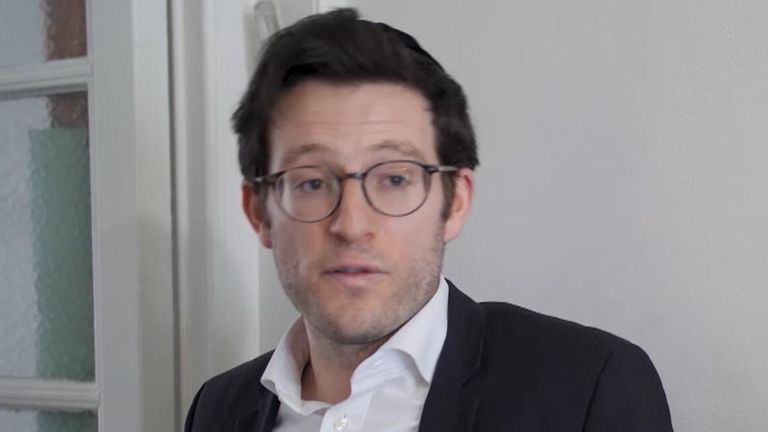
Rabbi Chaim Parnas
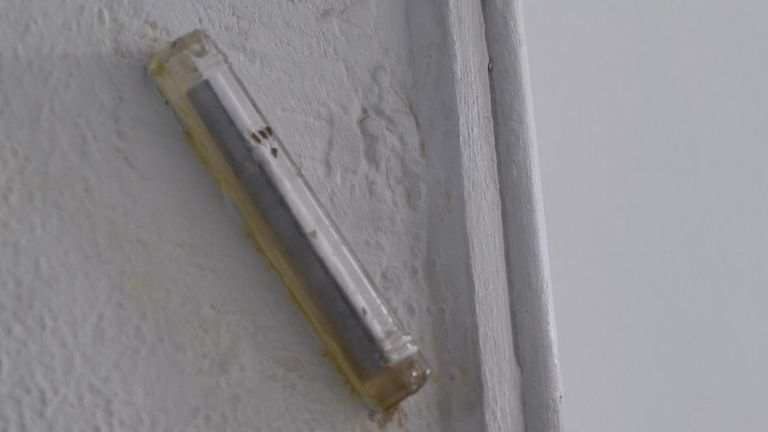
He says some people have asked if they can remove the traditional mezuzah from their doors
He understands the fear. He says slurs and intimidation are increasingly common.
“I don’t know why I have to be afraid to walk down the university corridor and someone’s going to shout ‘Dirty Jew’.
“But for some reason that’s legitimate as long as I’m Jewish. I became part of the conflict, and I am a target for those who are anti-Israel,” he says.
The attacks aren’t just verbal, dozens of Jewish graves were desecrated in Charleroi cemetery in southern Belgium in November.
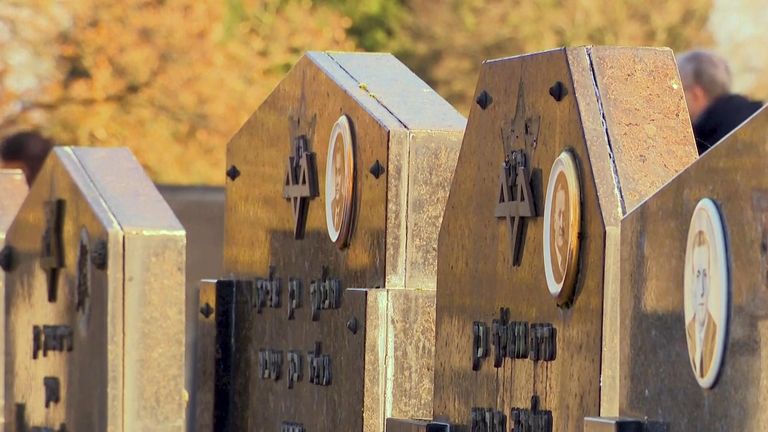
Dozens of Jewish graves were desecrated in Charleroi cemetery in southern Belgium in November
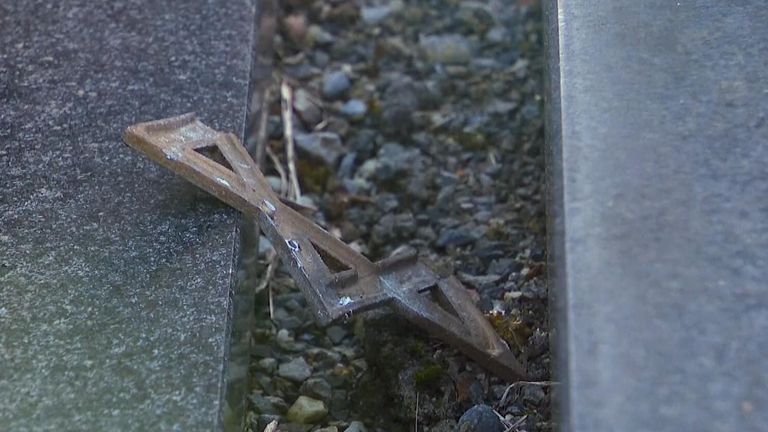
Beatings, assaults and Holocaust denial have also been reported, according to human rights group the Interfederal Centre for Equal Opportunities and Opposition to Racism (UNIA).
One teenager, Daniel, says he was chased because he is Jewish.
“A couple of months ago, I went out with a friend, and we were chased and kids were screaming, ‘You want to die? We’ll kill you’,” he says.
The teenager says kids from different backgrounds used to happily hang out together in the park, but now Jewish children risk being attacked.
He’s been threatened and chased with a razor.

Daniel, a teenager, says he was chased because he is Jewish
Read more from Sky News:
British troops exposed to ‘deadly poison’ in Iraq feel ‘betrayed’
Poland recalls 50 ambassadors appointed by former right-wing government
He says he now covers his customary kippah cap when he goes out to avoid drawing attention to himself.
As a result of the tension, security has been stepped up outside schools and synagogues and is tightened further during bar mitzvahs, when nearby streets are cleared of cars to avoid the possibility of bomb attacks.
“There’s a lot more security in the school and there are always police outside in case something happens,” Daniel says.
“I don’t think it’s a normal thing that outside of school there should always be police and extra security for protection.”
Belgium isn’t alone in seeing a rise in antisemitism – France, Germany, Italy and the UK are also tackling an increase in cases as shockwaves from the war in the Middle East open divisions in Europe.


